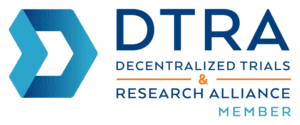By: Lisa Rodriguez, Senior Account Manager
Monitoring Key Performance Indicators (KPIs) is essential to ensuring the profitability and growth potential of your clinical research site. A frequent review of established KPIs gives you the opportunity to identify trends, track progress, pivot/re-strategize when goals are not being met, or simply provide peace of mind when things are on track. So what metrics are most important to track? Since there are so many different Site metrics and they can vary by Site and study, here’s a review of four “key” metrics that are relevant for every site.
Study Start-Up
Many Sponsors and CROs keep metrics on a Site’s study start-up performance. Historic start-up metrics could potentially play a part in your Site selection outcome, so it only makes sense for a Site to track this data as well. A few key study start-up metrics that are essential to success include:
- Time elapsed from study award to Site Initiation Visit (SIV)/activation
- Time elapsed from contract/budget received to fully executed contract
- Time elapsed from receipt of regulatory packet to regulatory submission to sponsor/CRO
- Time elapsed from IRB submission to IRB approval
By tracking these and other study start-up metrics, Sites can identify areas of improvement to speed up internal processes, ensuring Site goals are met and they remain competitive for future Site selection opportunities.
Study Recruitment and Enrollment
There is no successful study without successful recruitment and enrollment. A site must keep a weekly, if not daily, pulse on their recruitment efforts and outcomes, to ensure goals are met. A few key study recruitment metrics include:
- Number of contact attempts (phone calls, emails, texts, etc.) to reach potential subjects
- Number of scheduled Screening Visits
- Number of patients who Do Not Qualify (DNQ) along with the reason why
- This information is helpful to identify trends which could improve phone screening efforts or help your Sponsor/CRO identify roadblocks with inclusion/exclusion criteria which could result in a protocol amendment that allows an otherwise unsuccessful recruiting effort to be successful.
- Number of enrolled subjects compared to contractual enrollment goal
Tracking these recruitment metrics is crucial to making sure you have enough qualified participants fast enough to be competitive in the market.
Tracking these recruitment metrics and following up with issues are crucial to making sure you meet or exceed your enrollment goals fast enough to be competitive in the market. In addition, these metrics will help you make informed decisions about future recruitment campaigns.
Advertising Campaigns
Access to advertising campaign metrics help provide statistics to Sponsors/CROs during contract negotiations for advertising dollars. Advertising metrics are also useful for a site to reference when planning future enrollment efforts. Having access to what was previously effective, or not, helps a site plan to succeed with future campaigns. A few key advertising campaign metrics that are important to track include:
- Study advertising approved budget amount along with remaining budget dollars available
- Active campaigns with their start/stop dates
- Number of patients referred and enrolled from ad
- Cost per conversion (Cost per randomized subject enrolled from an ad will help you determine your return on investment ROI.)
In addition to the benefits already mentioned, tracking these metrics during the campaign can help you make adjustments to ad graphics and messaging to increase the success of the campaign.
Revenue And Expenses
Every business must keep up with their health by tracking daily, weekly, monthly, quarterly, and annual financials. Let’s face it, running a business costs money. Knowing where your business stands financially allows you to make informed, strategic decisions to best benefit your site. A few key financial items to track include:
- Total earned revenue
- Total received revenue
- Total revenue payment pending
- Total expenses
- Gross profit
- Forecasted revenue
Keeping a tab on these financial metrics should be worked into your routines to make sure you are on top of emerging problems so you can make changes quickly and keep your studies and Site(s) profitable.
A Final Word
These are just a few of the many metrics you should track. Every research Site and study is unique and should ultimately determine which metrics are important to them.
Data is power. In addition to all of the benefits above, it gives you the power to assure a potential Sponsor about your qualifications and past performance; the power to ensure company goals are met; the power to ensure your advertising dollars are spent in the most-effective way; and ultimately, the power to always know the financial health of your site, enabling the best decision making and planning possible.
To learn more about RealTime’s custom reporting tool, inSITES, click h





